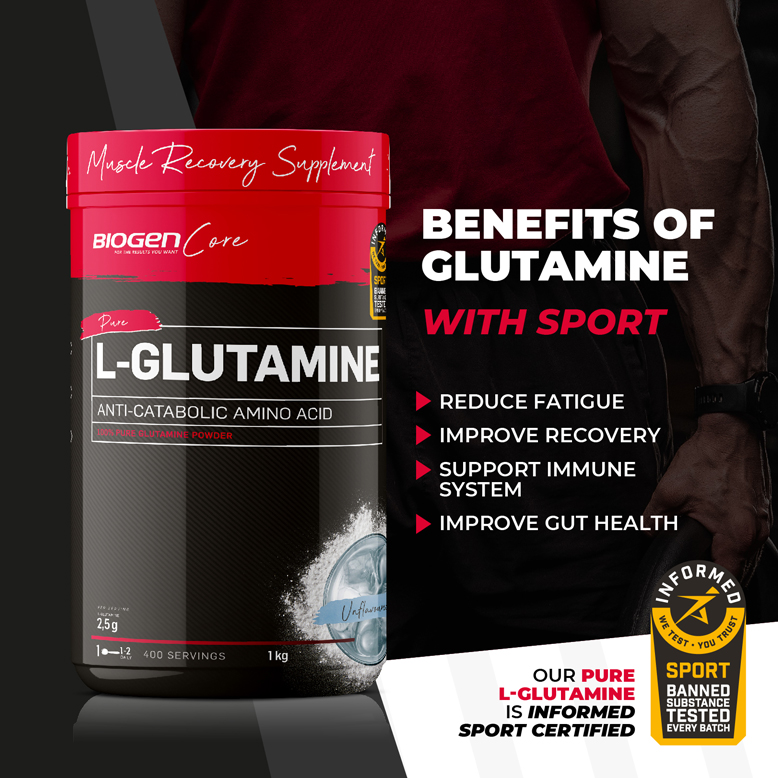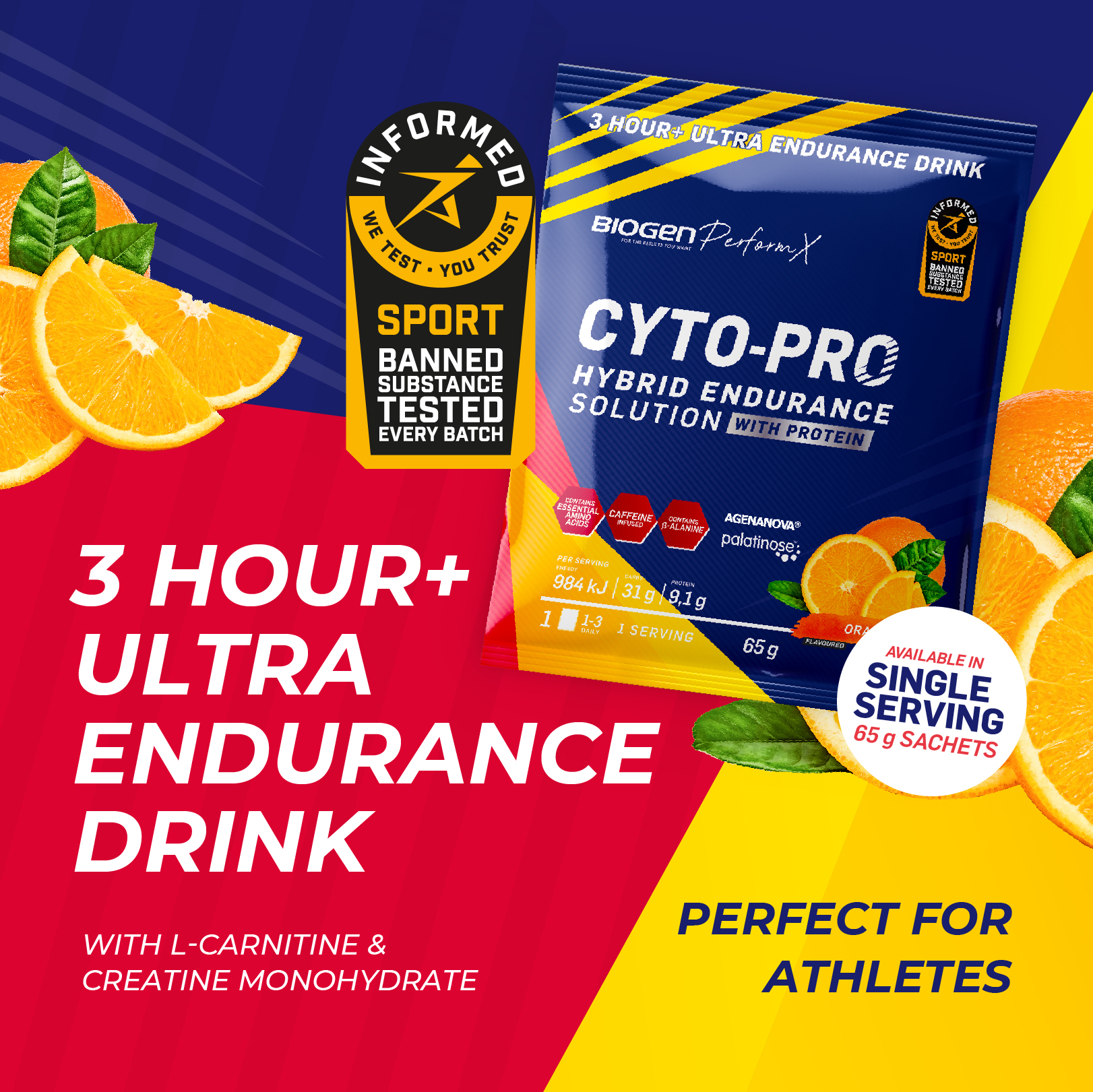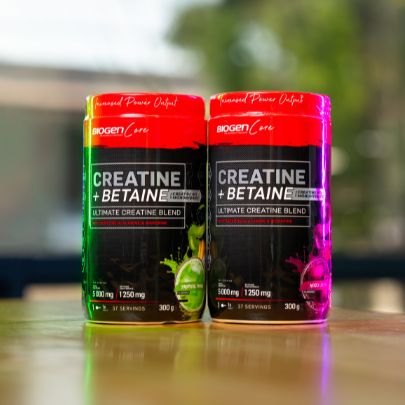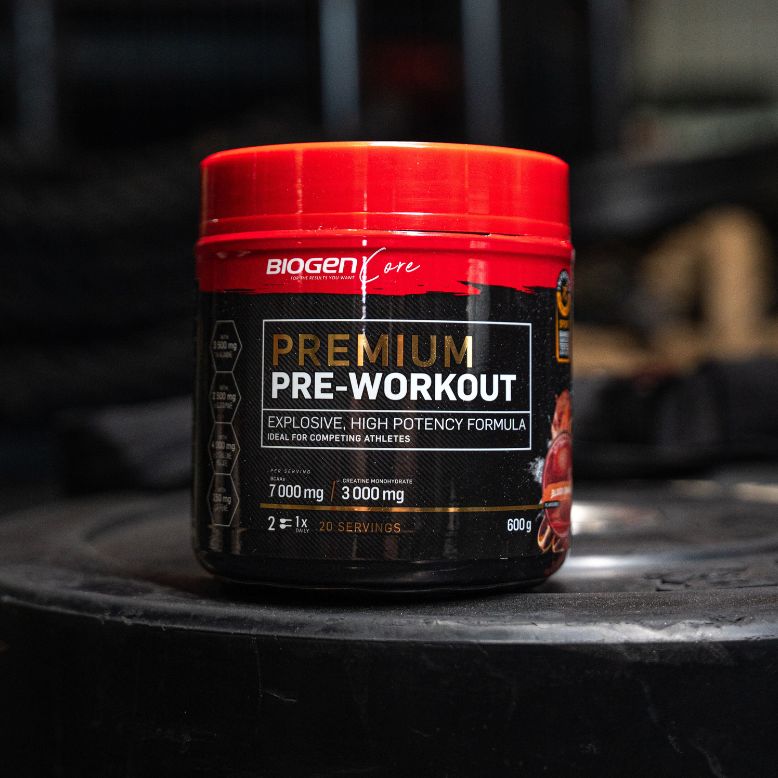
Our bodies need various minerals to deliver peak athletic performance, with magnesium a particularly important substance due to the numerous important processes in which it is involved.
In terms of optimal bodily function and maintaining good health, magnesium is a critical co-factor (a substance the acts as a catalyst) in hundreds of enzymatic reactions1 that happen in the body.
In this regard, magnesium contributes to the structural development of bone, supports normal nervous and muscular system function, and is required to synthesise DNA and RNA.
Performance benefits
From a performance perspective, magnesium is an important mineral needed for muscle contractions, muscle tissue repair, and maintaining our electrolyte balance, which plays a critical role in proper hydration.
As such, providing your body with adequate magnesium from a supplement like Biogen Cramp Care, Biogen Salt Tablets or Biogen Magnesium Fizzy can help to prevent cramps during physical activity.
For athletes looking to optimise absorption, possibly during training and racing, Biogen Magenesium Glycinate offers a highly absorbable form of magnesium, as it is bound to the chelating amino acid glycine.
Research2 also shows that adequate magnesium levels can help suppress lactate production (a rate-limiting factor for sustained physical efforts), and improves glucose metabolism and availability in the brain during exercise.
Interestingly, research3 suggests that “inadequate magnesium is associated with a need for increased oxygen during exercise”, which would limit performance among endurance athletes.
In the study, those with low muscle magnesium levels were likely to use more energy during moderate activity and tired more rapidly than those with adequate levels. This is largely attributed to the impact that a lack of magnesium has on the optimal energy production.
Additional functions in which magnesium plays a role and can improve performance include:
- Energy production
- Anabolic hormone production
- Protein synthesis
- Blood glucose control
- Blood pressure regulation
Link to recovery
Magnesium can support your recovery in numerous ways. Firstly, it is involved in your body’s response to oxidative stress. It is part of the process that produces the body’s so-called ‘master antioxidant’, glutathione, which helps to protect the body from the damage caused by free radicals.
And this mineral can help improve sleep quality due to its calming effects on the nervous system, which is an important element in optimal recovery.
A product like Biogen Slow Release Magnesium may support recovery with a slower absorption rate compared to other forms of magnesium due to the use of magnesium sulphate dihydrate, which is commonly used to treat magnesium deficiency.
The testosterone factor
With regard to testosterone production – a vitally important anabolic hormone linked to performance and recovery – a 2014 study4 that summarised data from observational and intervention studies about the role of magnesium in testosterone bioactivity found that men with impaired magnesium status and testosterone (T) deficiency “could benefit from magnesium and/or T treatment targeting physical performance”.
In this regard, a product like Biogen ZMA Power Plus may contribute to the maintenance of normal testosterone levels with its blend of zinc, magnesium aspartate and vitamin B6. This specific formulation may help to treat deficiencies in zinc and magnesium that can occur in athletes who train intensely, which may reduce testosterone levels and potentially compromise performance and recovery, and possibly lead to cramps and fatigue.
Stronger bones
Sufficient magnesium is important, particularly for athletes who engage in high-impact activities, because it plays a role in calcium and potassium absorption.
These minerals are also vital to ensure our physiology functions optimally because these minerals are required for nerve impulse conduction, muscle contractions, and normal heart rhythm.
For this reason, magnesium is typically included in efficacious supplements like Biogen Calmag Max (along with added vitamin D) to maximise absorption.
References:
- Magnesium Fact Sheet for Health Professionals. National Institute of Health: Office of Dietary Supplements. https://ods.od.nih.gov/factsheets/Magnesium-HealthProfessional/#:~:text=Magnesium%20is%20a%20cofactor%20in,%2C%20oxidative%20phosphorylation%2C%20and%20glycolysis.
- The effect of magnesium supplementation on lactate levels of sportsmen and sedanter. Acta Physiol Hung. 2006 Jun;93(2-3):137-44. doi: 10.1556/APhysiol.93.2006.2-3.4.
- USDA / Agricultural Research Service. “Lack Energy? Maybe It’s Your Magnesium Level.” ScienceDaily. ScienceDaily, 10 May 2004.
- The Interplay between Magnesium and Testosterone in Modulating Physical Function in Men. Int J Endocrinol. 2014; 2014: 525249. Published online 2014 Mar 3. doi: 10.1155/2014/525249










